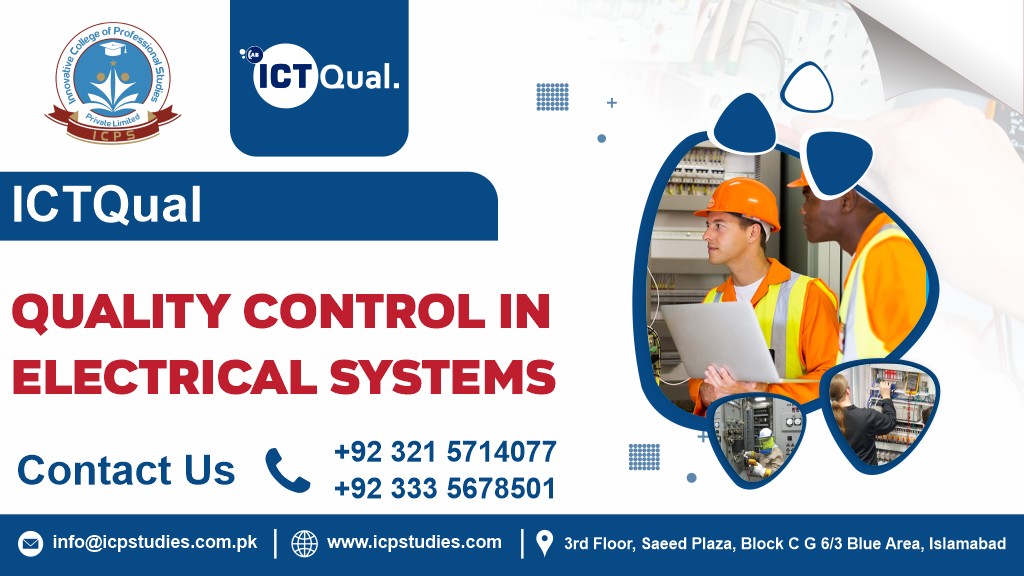In the realm of construction and infrastructure, the importance of quality control cannot be overstated. It ensures that every aspect of a project meets stringent standards, particularly when it comes to electrical systems. Whether it’s a residential building, a commercial complex, or an industrial facility, the reliability and safety of electrical installations are paramount.
Quality control in electrical systems involves systematic processes and checks to ensure that electrical installations, components, and systems meet specified standards and requirements. It encompasses the entire lifecycle of electrical projects, from design and procurement to installation, testing, and maintenance.
Quality control in electrical systems is not just about meeting standards; it’s about ensuring safety, reliability, and compliance throughout the lifecycle of a project. By implementing rigorous quality control measures—from design to installation and maintenance—builders and developers can deliver projects that meet the highest standards of safety and performance. Embracing technology and investing in skilled personnel are key to achieving these goals in today’s demanding construction environment.
All About ICTQual Quality Control in Electrical Systems
Course Overview
Quality Control in Electrical Systems refers to the systematic process of ensuring that electrical installations, components, and systems conform to established standards, specifications, and regulatory requirements. It encompasses a series of procedures and checks throughout the lifecycle of an electrical project, from initial design and procurement through to installation, testing, and ongoing maintenance.
Quality Control in Electrical Systems is essential for ensuring that electrical installations meet safety, reliability, and performance requirements. By adhering to rigorous quality control processes, stakeholders can mitigate risks, comply with regulations, and deliver electrical systems that meet the highest standards of quality and safety.
Study Units
- Key components and activities of quality control in electrical systems
- Objectives and Process of Quality Control in Electrical Systems
- Destructive Testing (DT) and Non-Destructive Testing (NDT) in Electrical
- Quality Control Tools in Electrical
- Industry Standards Relevant To Electrical Systems
- Regulatory Compliance
- Benefits of Effective Quality Control in Electrical
- Challenges in Quality Control in Electrical
- Importance of Feedback in Quality Control Electrical
- Components and Benefits of Iterative Quality Control Processes in Electrical Systems
The entry requirements for the ICTQual Quality Control in Electrical Systems course typically include:
- Age Requirement: Participants must be at least 18 years old.
- Educational Background: A foundational understanding of electrical engineering principles or a related field is recommended.
- Basic Literacy and Numeracy: Competence in reading, writing, and basic math skills to understand course materials and assessments.
- Relevant Work Experience: Experience in electrical systems or related environments can be beneficial but may not be mandatory.
- Health and Safety Awareness: A general understanding of health and safety practices relevant to electrical systems.
- Registration: Completion of necessary registration forms and payment of any applicable fees.
Always check with the specific training provider for any additional or specific entry requirements, as they may vary.
4o mini
The ICTQual Quality Control in Electrical Systems course is designed for:
- Quality Control Inspectors: Individuals responsible for inspecting and ensuring the quality of electrical components and systems.
- Electrical Engineers: Engineers seeking to deepen their knowledge of quality assurance practices in electrical design and manufacturing.
- Technicians: Technical staff involved in the testing and quality assessment of electrical systems and equipment.
- Manufacturing Personnel: Workers in the production process of electrical components who need to understand quality control measures.
- Supervisors and Managers: Those overseeing teams in electrical or manufacturing environments to ensure adherence to quality standards.
- New Entrants: Individuals starting a career in the electrical or electronics industry who want foundational knowledge in quality control.
This course equips participants with essential skills and knowledge to maintain and improve quality standards in electrical systems and components.
4o mini
Learning Outcomes
- Electrical Engineers and Technicians:
- Professionals working in the field of electrical engineering, installation, maintenance, or inspection.
- Those seeking to deepen their understanding of quality control principles specific to electrical systems.
- Construction and Building Professionals:
- Project managers, supervisors, and site engineers involved in construction projects with electrical components.
- Individuals responsible for ensuring compliance with electrical codes and standards.
- Quality Assurance and Compliance Officers:
- Professionals responsible for implementing quality assurance measures in electrical installations and systems.
- Those involved in regulatory compliance and ensuring adherence to industry standards.
- Students and Recent Graduates:
- Students pursuing degrees in electrical engineering or related disciplines who want to supplement their academic learning with practical knowledge in quality control.
- Recent graduates looking to enhance their employability in the field of electrical systems and construction.
- Maintenance and Facility Managers:
- Maintenance supervisors or facility managers overseeing electrical systems in residential, commercial, or industrial settings.
- Individuals responsible for ensuring the reliability and safety of electrical infrastructure.
- Consultants and Inspectors:
- Electrical consultants and inspectors involved in assessing and evaluating electrical installations for compliance and safety.
- Those looking to expand their expertise in quality control practices specific to electrical systems.
- Entrepreneurs and Business Owners:
- Business owners or entrepreneurs involved in electrical contracting or services, seeking to improve quality control processes within their organizations.
Why Take This Course?
- Enhance Skills and Knowledge: Gain comprehensive knowledge of quality control principles and practices specific to electrical systems.
- Advance Career Opportunities: Improve career prospects by acquiring specialized skills highly valued in the electrical engineering and construction industries.
- Ensure Compliance and Safety: Learn to implement effective quality control measures to ensure compliance with standards and enhance the safety and reliability of electrical installations.
- Professional Development: Stay updated with industry standards and best practices, contributing to ongoing professional development and growth.
FAQs about ICTQual Quality Control in Electrical Systems







